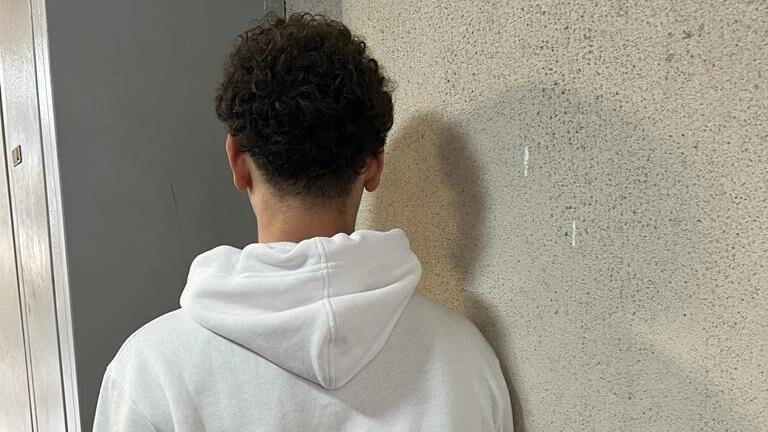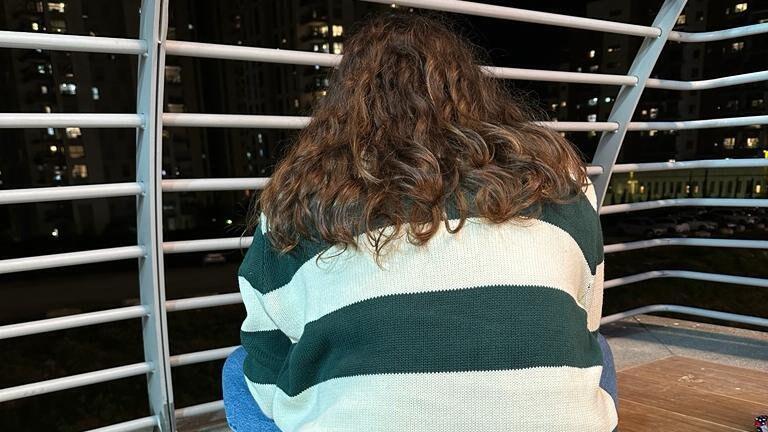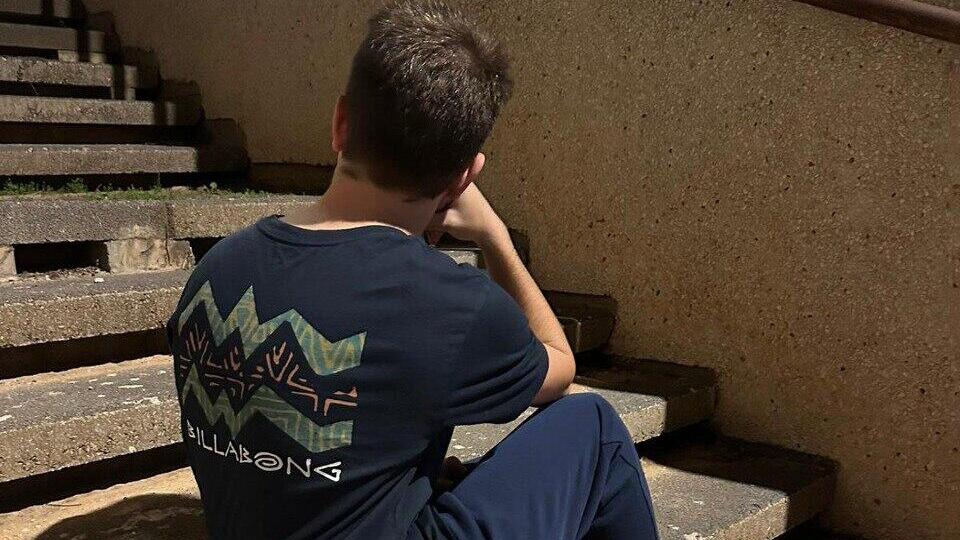Getting your Trinity Audio player ready...
The Elem Association, which has been supporting displaced youth living in hotels for the past three months, published on Sunday a "Displaced Youth Status Report."
Read more:
According to the report, many adolescents report mental distress: 60% of the youth report feelings of loneliness, and about half (46%) report feelings of depression and anxiety. Elem warns that these figures could lead to a phenomena of loss and eating disorders, and that there is already a noticeable increase of about 10% compared to a normal year.
The data in the association's report is based on information collected from over 1,000 displaced youth assisted by the association since the outbreak of the war.
"There is a noticeable dropout phenomenon from educational frameworks with 51% of displaced youth reporting that they have not integrated into an educational or social framework since the outbreak of the war," the report states.
"Some are not willing to return to school and some, who are struggling to go back, are not able to whether due to anxiety, depression, fear of leaving the room, the hotel, or significant difficulties in acquiring social skills, making new friends, and a lack of willingness for anyone to show compassion for them," says Gaya Nir, director of Elem's Breathing Spaces, in collaboration with the Welfare and Social Affairs Ministry.
According to the report, the adolescents tend to engage in increased substance abuse – 47% of youth aged 12-15 reported using drugs and alcohol. Such substance use may lead to an increase in violence rates, and 20% of the youth reported being involved in violent events in public spaces – in one out of every eight incidents police were called to the scene.
"Living in hotels in a situation of uncertainty and instability is very meaningful and affects both mental health and the ability to cope well. There's something about the lack of stability here that creates unhealthy coping mechanisms for adolescents because of the need to blur the experience. The nighttime hours are more chaotic because there are fewer adults in the nightly space, and we see adolescents coming to us intoxicated. Alcohol or substance use arises from the need to blur the very difficult experience they have gone through," according to Nir.
"A very strong thing we see is the lack of structure," she adds. "This is critical for us because as long as adolescents are not integrated into frameworks, our ability to provide them with immunity is limited. Especially when parental authority is dramatically reduced in light of the situation in which parents find themselves. We will not return to the previous state. As we transition from an emergency response situation to the beginning of recovery and adaptation to the new situation, we will be able to improve the situation for adolescents more quickly."
D. (15): 'I lost friends, and you are talking to me about an exam?'
On that Black Saturday, my mom woke me up with shouts that we should go to the bomb shelter. And so, with underwear and a phone at 37% battery, I entered the shelter. There's no way I'll forget that number - 37. After 18 hours of terror, we left the hell that used to be our home. Everything shattered, upside down, burned.
Since then, we moved from the Gaza envelope to a hotel. My parents take care of my siblings and me, but I see that they are going through something that is not good. Once they sat with friends on Fridays, drank wine and laughed. Nowadays, they sit almost every evening in the lobby, with their wine but also with another bottle. My younger siblings used to be involved in activities that never seemed to end. We manage to keep something like a routine for them in this place, but for me, it doesn't work anymore.
My friends and I wake up before noon, meet, and just start doing silly things and laughing. Every night. In the hotel, in the nearby neighborhoods. Wherever we can. Schools are the biggest joke they brought here. Everything is confusing, half a class from here and another quarter from there. Everyone is in a different place in the material, and who is even in the mood to study? Our friends were murdered, and you're talking to me about an exam? Give us a solution to how to live, to sleep normally, let my parents go back to work, let my siblings go back to their school. Everything is falling apart here.
E. (15): 'My old life no longer exists'
Me and my friends have been going through hell since October 7. Everything is chaotic and disorganized. On that Saturday, we were at home, trying to make the most of it. Not everyone took advantage of the situation, but I won't dwell on that because it might make me cry and feel overwhelmed. The next day, we all moved to Herzliya for a while and then to Tiberias. These are places I've visited before, and suddenly I feel alive there. However, no one asked me or consulted with me; they just said we're moving again.
In Tiberias, with a few friends, I started feeling like some routine and normalcy were returning. And then, boom, we moved again, this time to Jerusalem. There, everything turned completely upside down, for the worse.
Once again, I find myself in a new place, without friends, disconnected from school, and not interested in being involved. I'm already half a year behind in my studies, and I feel like I'm just alone. So, I spend the whole day on my phone – Telegram, TikTok, WhatsApp – repeating the cycle like a girl with no life. The life I had on that Saturday, those amazing and enjoyable moments, is no longer there.
I just want it to end. I want everything to end and go back to living like I did on a Friday three months ago.
S. (16): 'Bodies, blood and terrorists - I can't get it out of my head'
On that Saturday, we were at home in Sderot – my parents, my siblings, and me. It all began with a bang, filled with noise, chaos, phones, TV and pressure. We had never experienced anything like this before. For over 24 hours we were confined to our home because there were terrorists in the area very close to us – so close that it felt like they were right next door. We locked ourselves in and my friends sent us messages with video clips of what was happening outside our home. Sderot looked like a war movie – full of terrorists, screams, crying and gunfire.
On Sunday, we left our home and came here. What I saw on the way hasn't left my mind. What I saw on my phone hasn't left my mind. Bodies, blood, terrorists. Fear. Now, in Jerusalem, they want me to go to school. Which school? Who will study here? Without all my friends? Does it even matter to them?
I never thought I'd say this, but right now my phone is one of the most precious things I have in life. I don't want to think about what would have happened if my phone had no battery on that Saturday, or if we were in a quiet state and decided to go outside. People talk about anxiety; I don't really know what it truly means, but I do know that, for the rest of my life, I won't go anywhere without my phone. It might seem silly, but it gives me a sense of security, and that's the situation.





